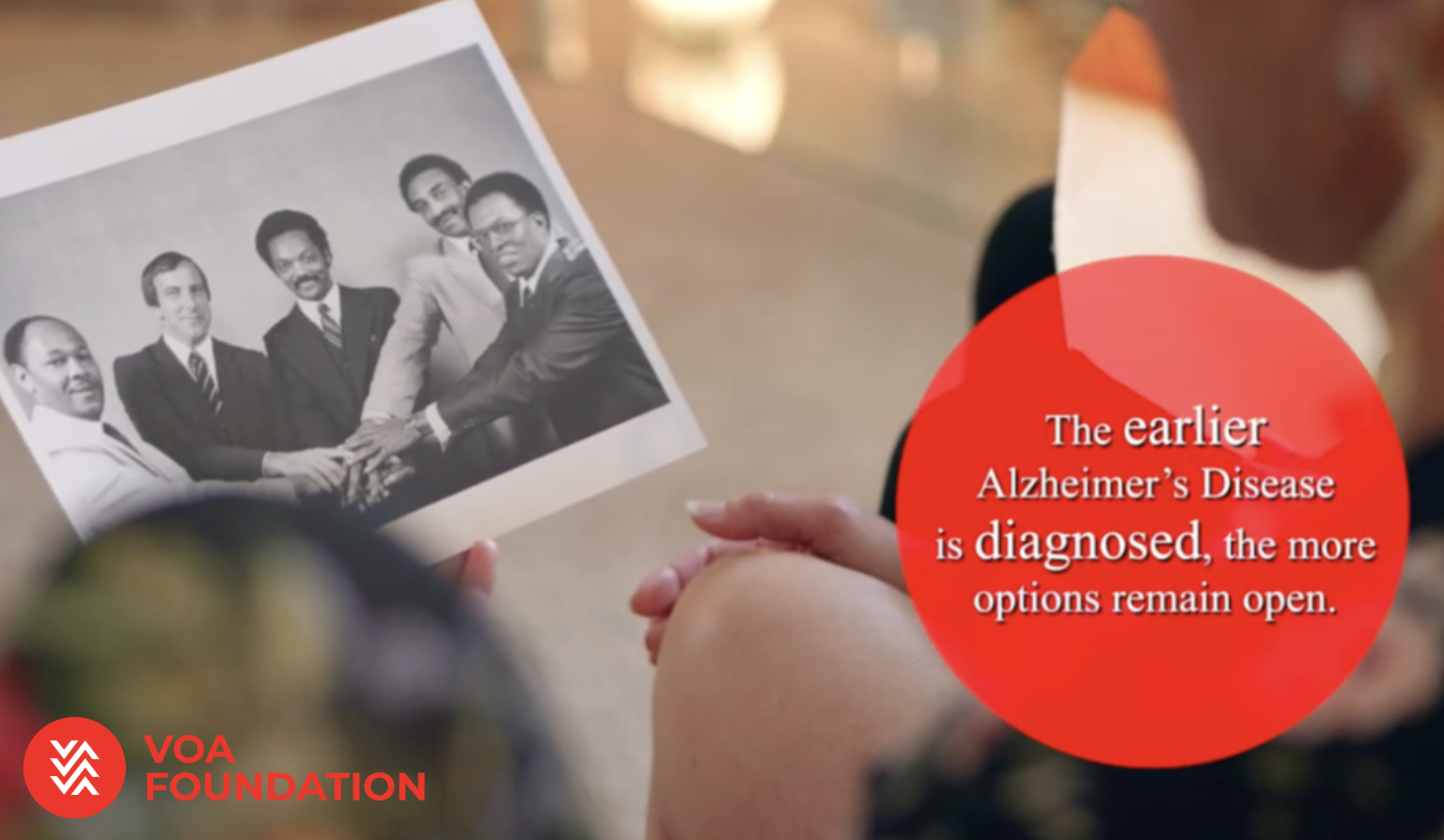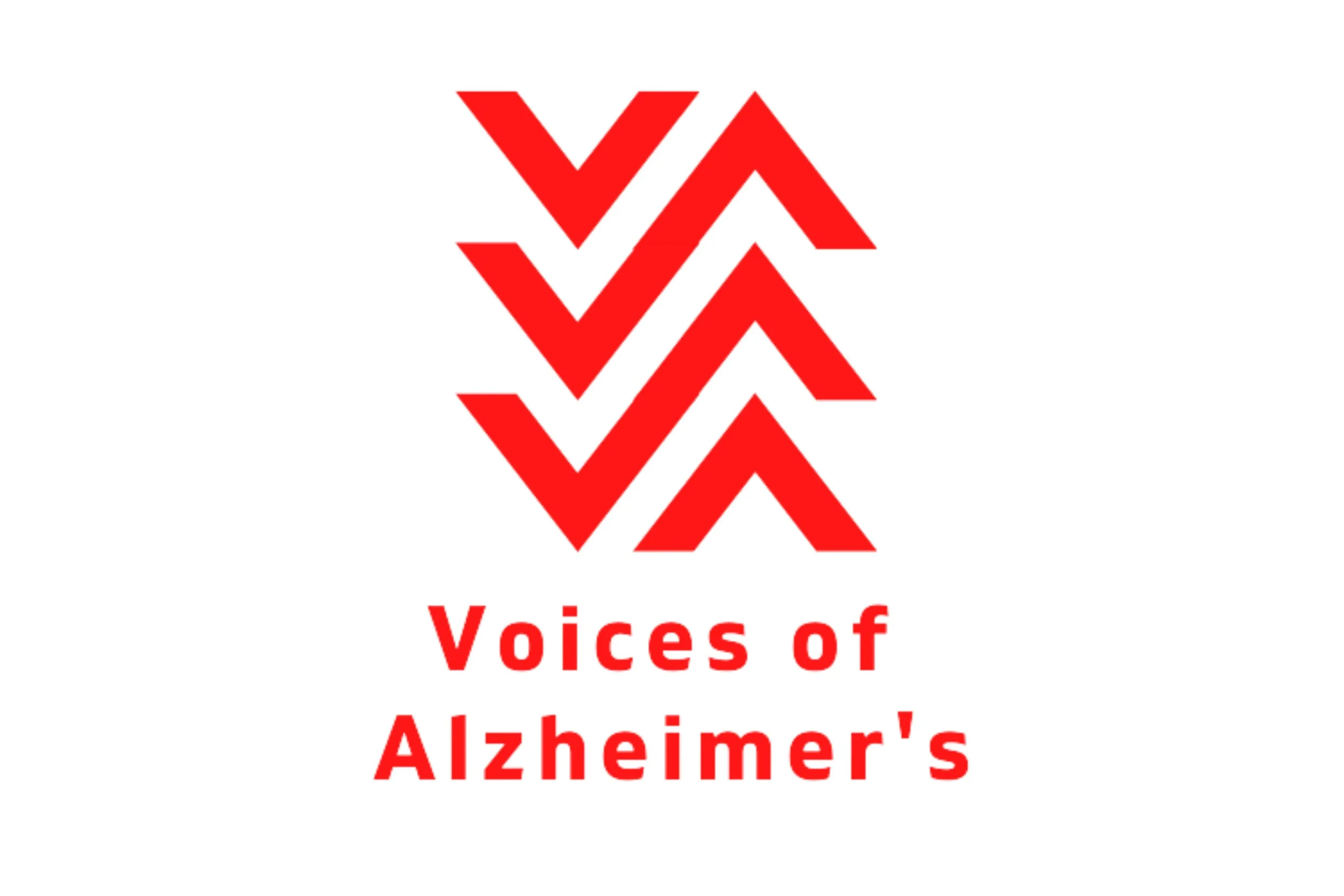VoA Foundation Newsletter
September Issue:
World Alzheimer’s Month: The Right to Timely Diagnosis
VoA-Led Publication Charts Path to Early Alzheimer’s Detection
Why Early Detection Matters: A Video from the VoA Foundation
Voices of Alzheimer’s: The Importance of Early Detection Webinar
Additional Alzheimer’s Resources
About the VoA Foundation
Get in Touch!
About the VoA Foundation
We are proud to introduce the VoA Foundation, an educational initiative born from Voices of Alzheimer’s. Our organization, led by individuals living with Alzheimer's, is on a mission to transform the landscape of Alzheimer's care and understanding.
Through the VoA Foundation, we aspire to eradicate stigma, champion equality, and craft educational resources that shed light on cutting-edge innovations in care and treatment. Our vision? A world in which individuals grappling with Alzheimer's and other cognitive illnesses can embrace a life filled with well-being and joy.
Additional Alzheimer’s Resources
At the VoA Foundation, we are committed to providing valuable resources and support to those affected by Alzheimer's and other cognitive illnesses. We have compiled the best resources from leading Alzheimer’s organizations to provide the most comprehensive expertise for those living with the disease and their loved ones. Our subject areas include:
Follow Us!
Questions? Want to get in touch? Email us at voa-foundation@voicesofad.com.
World Alzheimer’s Month: The Right to Timely Diagnosis
Every September, World Alzheimer’s Month raises awareness of one of the most pressing issues in brain health: the need for timely and accurate diagnosis. For millions of people around the world, a delayed diagnosis can mean years of uncertainty, stress, and missed opportunities for early treatment and support. This month serves as both a global call to action and a reminder of what’s at stake when individuals and families must navigate Alzheimer’s without the answers they deserve.
Globally, more than three quarters of people living with dementia remain undiagnosed. In the United States, individuals wait an average of nearly three years—from the first signs of memory loss to receiving a confirmed diagnosis of Alzheimer’s disease. That’s nearly three years of lost time for care planning, access to new therapies, and vital conversations about safety and quality of life. These delays ripple far beyond the individual, affecting family members, caregivers, and communities who lose valuable time to prepare, connect with resources, and make informed choices. The absence of a diagnosis can also deepen stigma and silence—discouraging people from seeking help until the disease has progressed significantly.
That’s why awareness and advocacy during World Alzheimer’s Month are so critical. Each conversation, screening, and story shared helps break down the barriers of stigma and misinformation that stand in the way of early detection. Expanding access to timely diagnosis is not only a medical priority—it’s a moral and social imperative.
Timely diagnosis is more than a clinical milestone—it’s a turning point. It allows people to participate in decisions about their care, maintain independence longer, and connect with the resources and community support they need. For families, it brings understanding, relief, and the ability to plan with purpose rather than uncertainty. For society, it’s a step toward ensuring that brain health is valued and protected for all.
The Bill of Rights for People Living with Alzheimer’s Disease:
The Bill of Rights for People Living with Alzheimer’s Disease, introduced by Voices of Alzheimer’s (VoA) and the VoA Foundation, outlines the fundamental rights that individuals with Alzheimer’s and related disorders are entitled to.
One of its ten rights is the right to be diagnosed and treated promptly. During World Alzheimer’s Month, this right serves as a powerful reminder that early diagnosis is not a privilege—it’s a right that protects autonomy, dignity, and hope. Timely diagnosis empowers individuals to take an active role in their care, access new treatment options, and make informed choices about their future. It also gives families the clarity and confidence they need to plan ahead and ensure their loved one receives compassionate, person-centered care.
Resources for Timely Diagnosis
We’ve compiled a list of resources dedicated to supporting individuals and caregivers in understanding and accessing resources for timely diagnosis.
VoA-Led Publication Charts Path to
Early Alzheimer’s Detection
A powerful step forward in the movement for early detection, a new article developed by Voices of Alzheimer’s was recently published in the Journal of Internal Medicine. Titled "Early Detection in Primary Care: Implementing Early Detection of Cognitive Impairment in Primary Care to Improve Care for Older Adults," the peer-reviewed article examines the feasibility and value of early detection of cognitive impairment in primary care.
Authored by a cross-disciplinary group of more than a dozen leading experts, the article makes the case for expanding primary care’s role in the early detection of cognitive impairment and examines how recent advances have made implementation more feasible.
Why Early Detection Matters:
A Video from the VoA Foundation
During Alzheimer’s and Brain Awareness Month, we’re highlighting the importance of annual cognitive screenings — a critical first step toward early diagnosis and better care.
Our new video, created in partnership with families, care partners, and clinicians, shares powerful stories about the impact of catching Alzheimer’s early. It also reminds viewers of their right to a free cognitive assessment through Medicare’s Annual Wellness Visit.
Early detection brings hope, access to treatment, and more time to plan.
Voices of Alzheimer’s - The Importance of Early Detection Webinar
Listen to Voices of Alzheimer’s important webinar exploring the latest advancements in early diagnosis and intervention for Alzheimer’s disease. Hear from leading experts—Mollie Geismer, Dr. Deanna Willis, and Dr. Jared Brosch—as they share personal stories, clinical insights, and practical strategies for navigating early diagnosis. This session will highlight new detection methods, the critical role of early cognitive evaluations, and practical strategies for patients, care partners, and healthcare professionals to take meaningful action.









